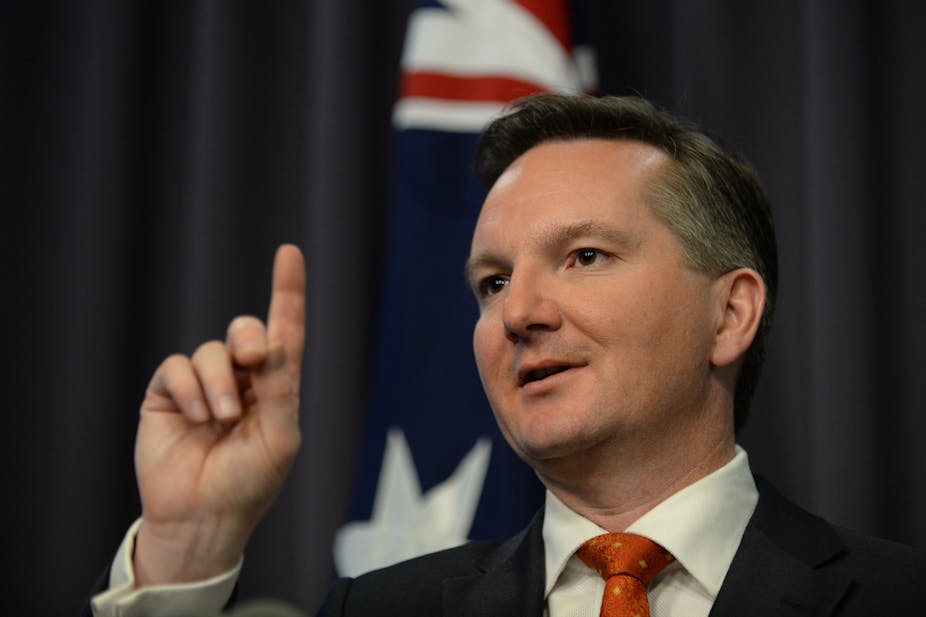Chris Bowen, the new Labor Treasurer, has announced the government’s plans for savings and new sources of revenue to meet a budget shortfall with the aim of bring about the elusive budget surplus in 2016/17.
There is a predicted “black hole” in the budget over the next four years of A$33 billion. Astonishingly, the estimate of the current deficit has been revised from $18 billion to $30 billion in less than three months. In such a short time after the May budget we have such a correction in these revenue figures that it’s almost unbelievable.
That’s the first question that someone has to answer: if the budget estimates are so unreliable, how can we put any faith in these latest numbers? When is this trashing of the reputation of one of Australia’s most respected institutions the Treasury, going to stop?
As I have previously written, most of the problems with the federal budget are structural. Given the erosion of the revenue base under Howard and Rudd, it is very difficult to finance continual government spending. There either has to be a drastic reduction in spending, or the government has to solve the problem of widening the tax base: which may mean increasing GST or increasing the coverage of the GST.
However, successive Labor governments have sought band-aid solutions to a problem requiring major surgery. The Bowen “mini budget” is yet another example of this band-aid approach.
Tax increases of 12.5% per year for four years on tobacco are forecast to raise $5.3 billion over the forward estimates. The so-called “sin taxes” are always a good way to bring about a quick fix when government revenue needs topping up. However, it is disingenuous of the government to maintain this is a public health measure. There will be some reduction in smokers. Writing in these pages, Becky Freeman predicted the new tax rise would result in about 250,000 fewer smokers in Australia.
However, the remaining 2.5 million (approx) will not give up, which is why the tax is imposed on them. In economics jargon demand is inelastic. According to the NSW Cancer Council, working class, less well-off Australians are more likely to be smokers which makes the tobacco tax highly regressive. Raising excises tobacco will punish families, especially on lower incomes, for the deficits and debts under this federal government.
All in all the prospects for Australians most disadvantaged do not look good with gloomy prospects for growth and unemployment.
The government wants to introduce a levy on lenders with bank deposits of less than $250,000 to help fund any future bailouts of banks and other financial institutions. This will appear as an increase in revenue when paid by bank customers and an expenditure if it is called on when a bank collapses. Again this is dressed up as a noble safeguard to consumers, drawing on the precedents of Europe and the US.
Despite the fact that the Australian financial system is subject to far less risk than other countries and did not experience the same crisis as others, a case can be made for a user pays insurance scheme for depositors. But it is totally inappropriate to count the revenue (premiums) to the government revenue figures in order to disguise the deficit.
The changes to the fringe benefit treatment of employer-provided cars can also be justified in terms of correcting for a relatively inefficient and inequitable taxation treatment, although it pales into insignificance compared to the treatment of superannuation.
But again this piecemeal - and surprise - approach to policy comes with costs, as we have seen, to people in the car and packaging industries. Thus we have the ludicrous announcement by Kim Carr that additional subsidies will be given to Australia’s inefficient car producers to compensate for removing an inefficient tax.
There were other relatively minor cost cuts which made up the band-aid approach including overseas aid. Not the best look for a country with an economy said to be “the envy of the world”.
It’s time to tackle the structural problems facing revenue and expenditure.
Instead Bowen provided a strategy not likely to work, based on information not likely to be true by a government not likely to be around long enough to face face the consequences.
We’ll see come September 7 whether the voters agree.

